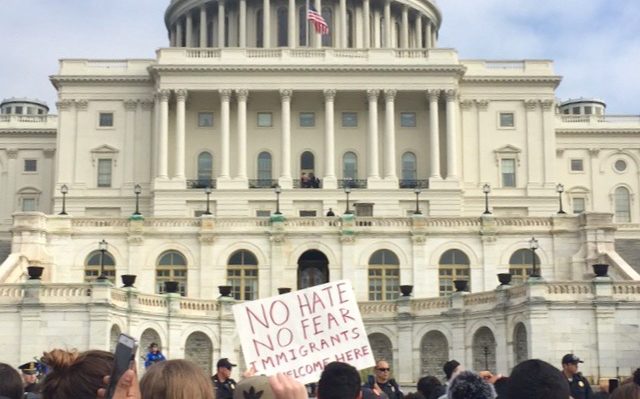On Tuesday, Jan. 9, a federal judge ruled to block the Trump administration’s decision to end DACA. The federal judge also called for the administration to resume receiving DACA renewals after stating the program was necessary and that “our country has a strong interest in the uniform application of immigration law and policy.”

This ruling occurs after a tumultuous past few months surrounding the DACA program. The issues surrounding DACA began with President Donald Trump calling for an end to the program in September after claiming it to be an unconstitutional use of an executive order. The program was first introduced by former President Barack Obama in 2012.
While the program is set to officially end in March, the repeal of DACA has been met with widespread controversy. Following the recent government shutdown, the fate of nearly 700,000 “Dreamers” is in limbo while Congress continues to deliberate on a more bipartisan approach to immigration.
DACA stands for Deferred Action for Childhood Arrivals and gives people who were brought to the U.S. as children a chance to achieve a higher education, as well as granting them the ability to work and drive in the U.S. legally. The program is renewable every two years but does not provide a pathway to citizenship. DACA recipients do not qualify for federal financial aid and are required to pay taxes.
“The main misconception with Deferred Action is that people assume that kids like me can apply for citizenship at any time, but there is currently not a pathway through DACA,” Milligan sophomore Randy Huerta, a current DACA recipient, said. “Deferred Action was basically the beginning of an opportunity.”
As of right now, around March 5 there are many students whose DACA will expire and will not be renewable. Various bills, including the DREAM Act, are being considered as replacement programs that would still provide for undocumented people brought into the U.S. at a young age, as well as offer a bipartisan compromise to immigration policies.
According to Dalia Llamas, a student at Northeast State and current DACA recipient, “Right now supporters of DACA are pushing for the DREAM Act to pass in Congress, because it provides a pathway to citizenship that was unavailable before. The U.S. is my home, and I’m hoping something good can come out of DACA’s end.”
There are currently around 400 DACA recipients in the 1st Congressional District of Tennessee, which includes the counties Carter, Cocke, Greene, Hamblen, Hancock, Hawkins, Johnson, Sullivan, Unicoi and Washington.
Congress has extended the deadline for ongoing budget negotiations, which include negotiations on immigration and disaster funding. Congress is projected to reach an end to their deliberations on Feb. 8, 2018.

